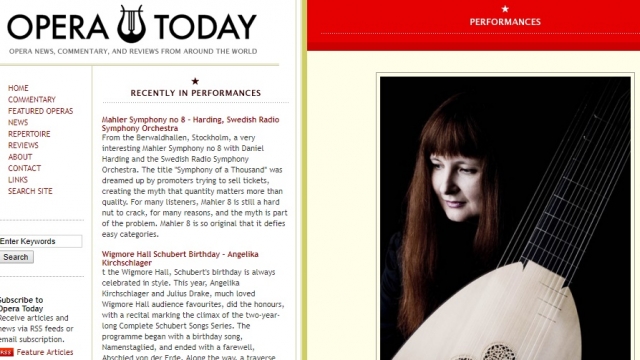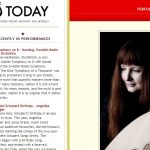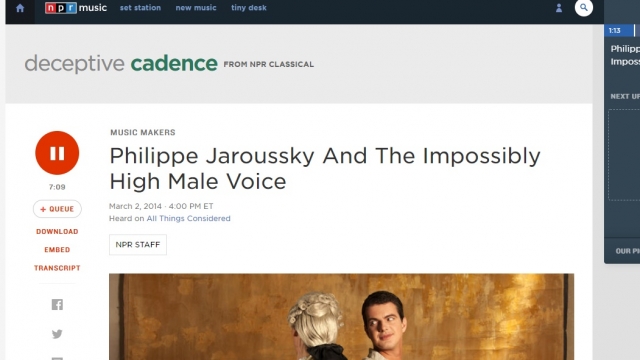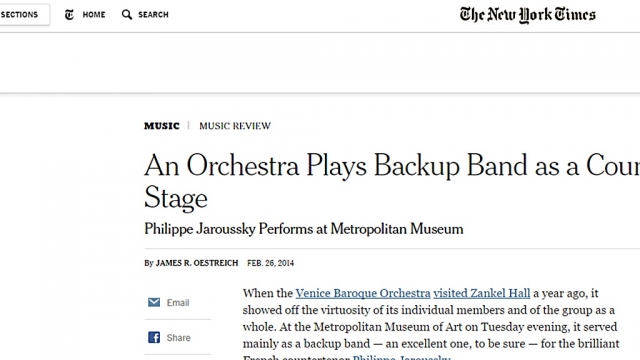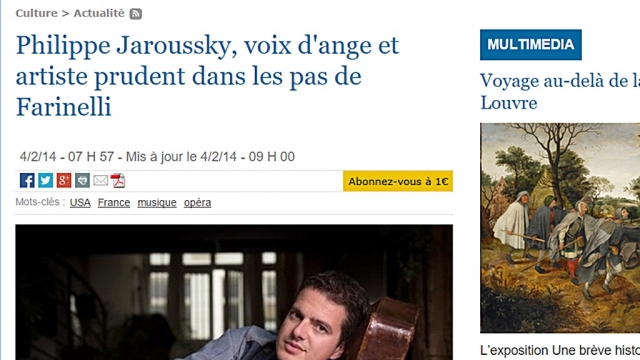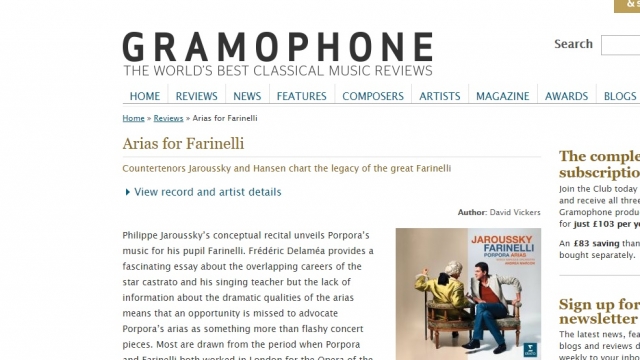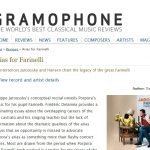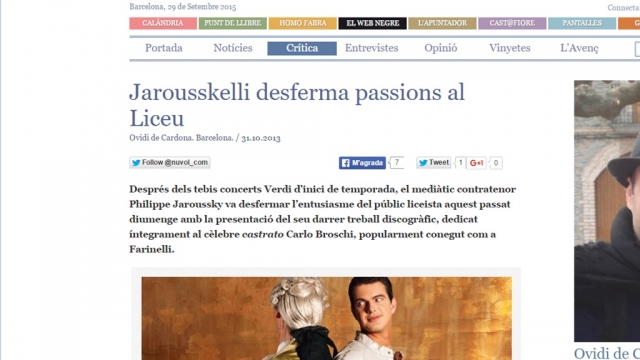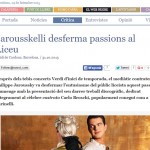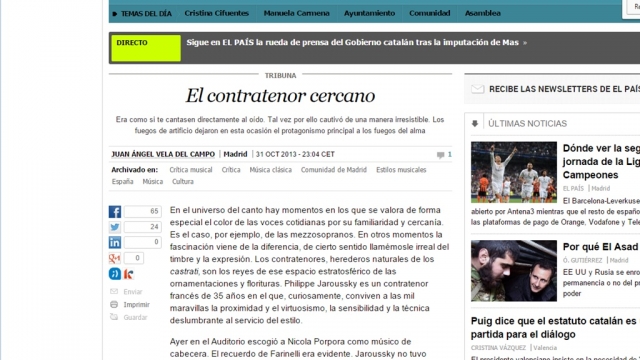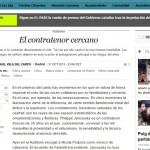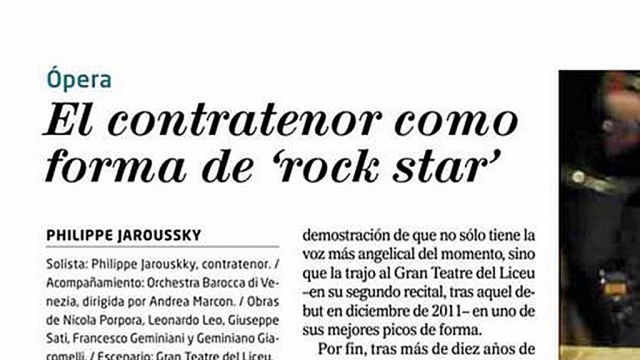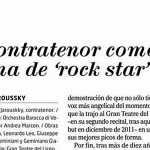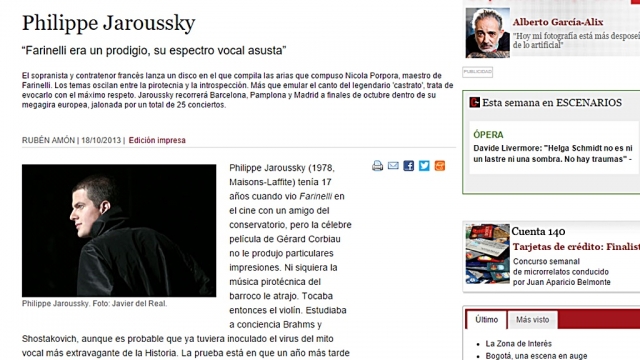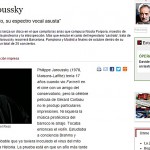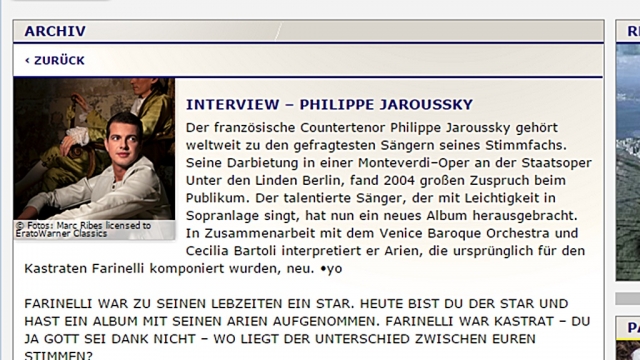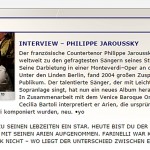2014-03-02, Deceptive Cadence, by NPR Staff
MUSIC MAKERS
Philippe Jaroussky And The Impossibly High Male Voice
March 2, 20144:00 PM ET
Heard on All Things Considered
NPR STAFF
Philippe Jaroussky’s new album is Farinelli: Porpora Arias.
Marc Ribes /Erato/Warner Classics
Transcript
Philippe Jaroussky cuts a masculine figure on the cover of his new album, Farinelli: Porpora Arias, but you might do a double take upon hearing the music. The arias the French opera singer performs on this release were written in the 18th century for a castrato — a boy singer castrated to retain his high singing voice through adulthood.
Jaroussky is still intact, as they say. He’s a countertenor who achieves that high pitch through vocal technique — singing in a ‘head voice,’ the way the way a female soprano would, rather than in his speaking register. It’s the reason, he says, that he’ll never sound exactly like a real castrato.
“They were sounding more brilliant than us because they are bigger. They have enormous chests, with very small vocal cords,” Jaroussky explains in an interview with NPR’s Arun Rath. “That was probably pretty impressive to hear. And we know that they could keep a sound for one, two minutes, without breathing at all. You can imagine, the impact on the audience was probably amazing.”
Jaroussky took a particular interest the music Neapolitan composer Nicola Porpora wrote for the castrato Farinelli, perhaps Porpora’s most famous pupil. Audible in the work, Jaroussky says, is a mutual understanding between teacher and student that singing is about more than just biology.
“It wasn’t enough to make the operation on a child. They were training, practicing, for many, many years. They were practicing for eight hours, 10 hours a day,” he says. “What I liked with this Porpora music, particularly, is it wasn’t based about virtuosity. I think he’s respecting Farinelli more like a musician, and not only a vocal monster.”
Jaroussky says the point of taking on this repetoire was never to emulate Farinelli — though at least one critic has needled him for not sounding enough like the master.
“I don’t want to say that I’m singing like Farinelli. That would be very pretentious,” Jaroussky says. “But I think the people, they need to hear this music! When I was a student I practiced a lot, all these technical points. But now, what matters for me is really to sing for the audience in front of me. And the audience in front of me is a modern one.”
Source/Read more/Listen to Podcast: [x]

